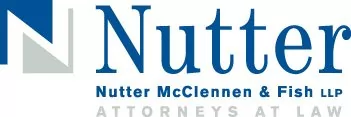![]() ,
Reza Mollaaghababa, Ph.D.
,
Reza Mollaaghababa, Ph.D. ![]() and
David J. Powsner
and
David J. Powsner ![]()
Originally published June 29, 2010
The long-awaited Supreme Court decision on "business
method" patents in the case of Bilski v. Kappos was
handed down yesterday and, in a rare instance of unanimity, the
justices agreed that Bilski's method of hedging risks in
commodity trading was not eligible for patent protection. The Court
took the simplest approach, relying on long-standing precedent that
one cannot patent an abstract idea to conclude that Bilski's
method of hedging commodity trades was not a patent-eligible
process but, rather, just an ineligible abstract idea.
Although it affirmed the judgment of the Court of Appeals for the
Federal Circuit, the Supreme Court rejected the lower court's
rationale. Writing for the majority, Justice Kennedy said that the
so-called machine-or-transformation standard adopted by the Federal
Circuit as a litmus test of patent eligibility violated principles
of statutory interpretation and posed a risk of obscuring the
larger objectives of the patent system. Under that test, a
method is deemed eligible for patenting only if it is tied to a
specific machine implementation or it transforms an article from
one state to another. "The machine-or-transformation test may
well provide a sufficient basis for evaluating processes,"
said Kennedy, but "should not be the sole criterion for
determining the patentability of inventions in the Information
Age." Justice Kennedy did not specify any other criterion per
se, but he suggested that it ought to be in line with the Supreme
Court precedent against patenting abstract ideas and that it be
less extreme than the machine-or-transformation standard.
With regard to business methods, Kennedy suggested that "...
the Patent Act leaves open the possibility that there are at least
some processes that can be fairly described as business methods
that are within patentable subject matter...." It is on this
point that the Court lacked unanimity. In a separate opinion,
Justice Stevens traced the history of patent law from early English
common law and American jurisprudence to the last comprehensive
revision of the U.S. Patent laws in 1952. Stevens concluded that
Congress never intended to make any methods of doing business
patentable. According to him, "[t]he breadth of business
methods, their omnipresence in our society, and their potential
vagueness also invite a particularly pernicious use of patents that
we have long criticized." Justices Ginsberg, Sotomayor, and
Breyer were in agreement with Stevens.
Writing separately, Justice Breyer counseled the lower courts not
to infer from yesterday's opinion any support for the Federal
Circuit's still-prior test of patent eligibility. In the State
Street Bank case, the Federal Circuit had ruled that any method
which produced a "useful, concrete and tangible result"
was patentable. That was the prevailing standard until it was
repudiated by the same court in Bilski, in 2008. Breyer
saw little value in readopting that standard, ridiculing the prior
test as having led to granting of patents that ranged from the
"somewhat ridiculous to the truly absurd."
Yesterday's decision by the Supreme Court leaves many questions
unanswered. Following its time-honored traditions, the Court chose
to avoid far-reaching pronouncements and let the law of
patent-eligible subject matter evolve in due course. Those who seek
business method patents in the future, however, will need to be
wary since Justice Stevens and the other three Justices who joined
in his concurring opinion are clearly of the opinion that business
method patents are not authorized by U.S. Patent laws.
In the short term, applicants seeking business method patents will
need to draft their claims in a way that avoids their rejection as
merely "abstract" ideas. While the Supreme Court has now
held that the machine-or-transformation test is not the exclusive
test for patent eligibility, applicants who meet this test may well
continue to have a safe harbor.
This update is for information purposes only and should not be construed as legal advice on any specific facts or circumstances. Under the rules of the Supreme Judicial Court of Massachusetts, this material may be considered as advertising.
We operate a free-to-view policy, asking only that you register in order to read all of our content. Please login or register to view the rest of this article.

